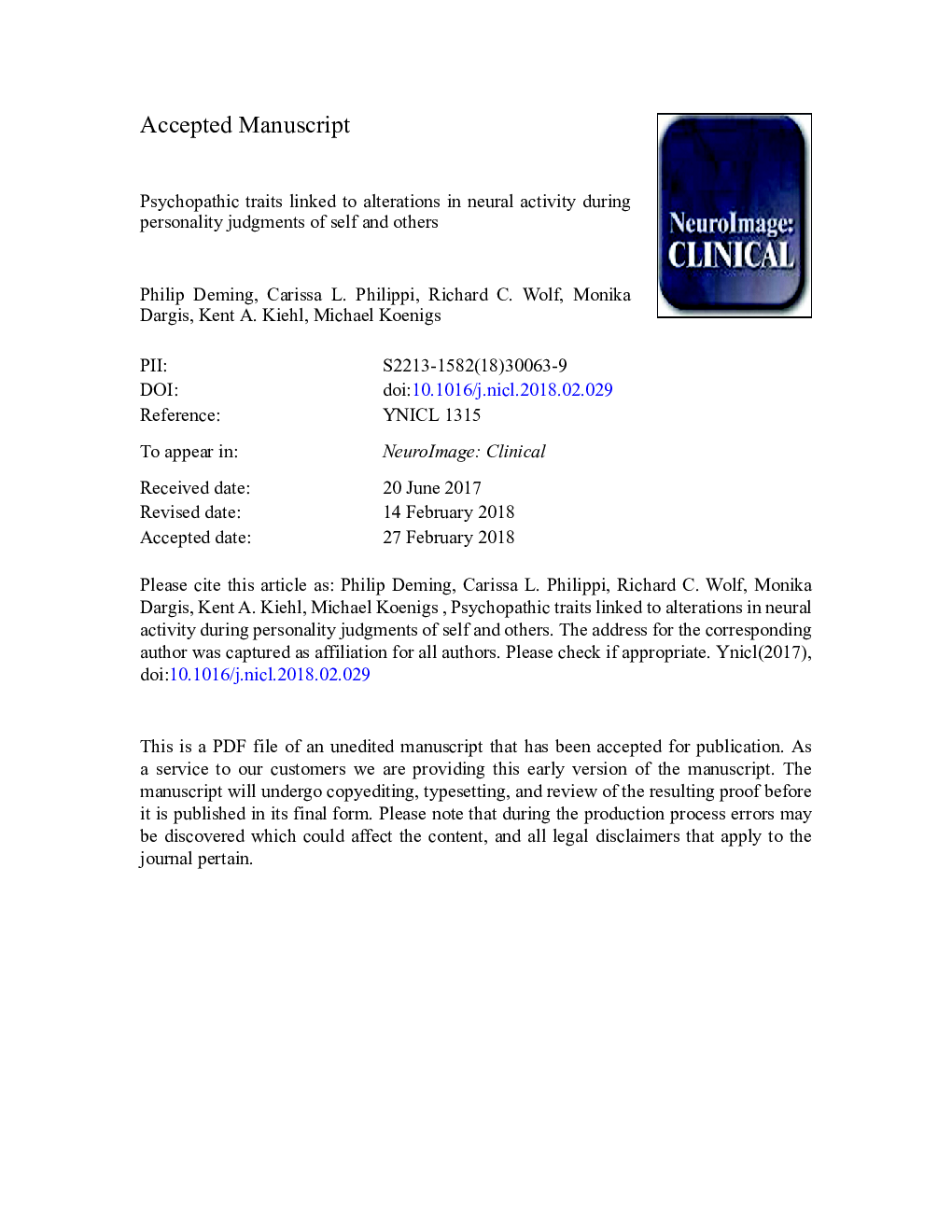| Article ID | Journal | Published Year | Pages | File Type |
|---|---|---|---|---|
| 8687897 | NeuroImage: Clinical | 2018 | 30 Pages |
Abstract
Psychopathic individuals are notorious for their grandiose sense of self-worth and disregard for the welfare of others. One potential psychological mechanism underlying these traits is the relative consideration of “self” versus “others”. Here we used task-based functional magnetic resonance imaging (fMRI) to identify neural responses during personality trait judgments about oneself and a familiar other in a sample of adult male incarcerated offenders (nâ¯=â¯57). Neural activity was regressed on two clusters of psychopathic traits: Factor 1 (e.g., egocentricity and lack of empathy) and Factor 2 (e.g., impulsivity and irresponsibility). Contrary to our hypotheses, Factor 1 scores were not significantly related to neural activity during self- or other-judgments. However, Factor 2 traits were associated with diminished activation to self-judgments, in relation to other-judgments, in bilateral posterior cingulate cortex and right temporoparietal junction. These findings highlight cortical regions associated with a dimension of social-affective cognition that may underlie psychopathic individuals' impulsive traits.
Related Topics
Life Sciences
Neuroscience
Biological Psychiatry
Authors
Philip Deming, Carissa L. Philippi, Richard C. Wolf, Monika Dargis, Kent A. Kiehl, Michael Koenigs,
